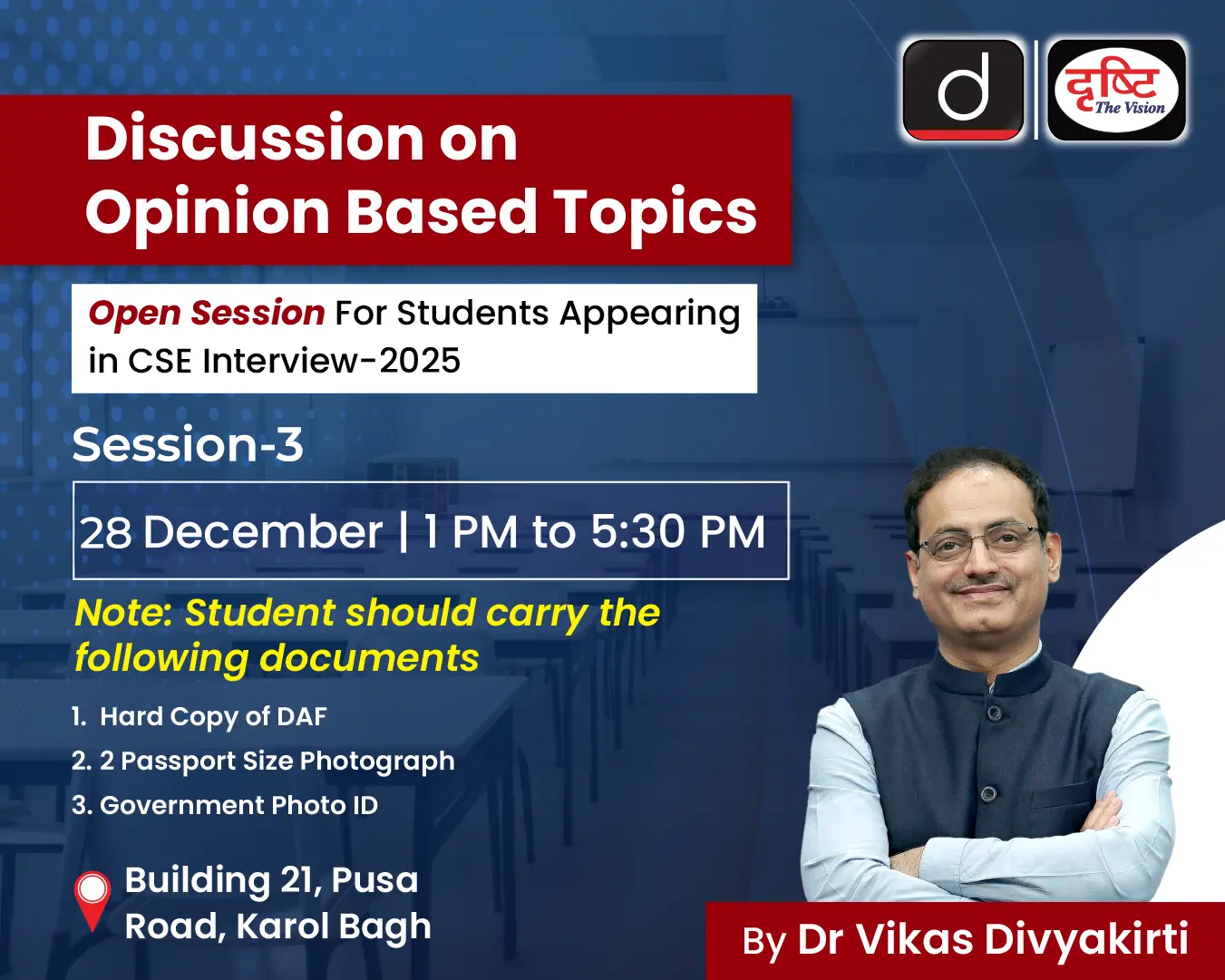- Filter By :
- Theoretical Questions
- Case Studies
-
Q. “The unexamined life is not worth living”, how would you interpret this statement of Socrates? (250 words)
17 Nov, 2022 GS Paper 4 Theoretical QuestionsApproach
- Start the answer by briefly introducing Socrates.
- Discuss your interpretation of the given statement.
- Discuss the significance of self-retrospection.
- Conclude suitably.
Introduction
- Socrates was an ancient Greek philosopher, who was considered as the father of ethics and inquiry. According to his beliefs, one develops ethics through maturity, wisdom and love.
- He introduced the concept of teaching ethics and acceptable standards of conduct in 400 B.C. and has had a profound and lasting impact on the course of Western philosophy and history ever since.
Body
- Interpretation of the above statement:
- It is important to use our highly developed faculty of thought to raise our existence above that of mere creatures. Simply eating, sleeping, working and procreating can’t distinguish us from animals. Without thinking, our lives are not worth living. An examined life helps in delivering love, hatred, generosity and joy at the right time, the right place and to the deserving stakeholders. It helps in believing, learning and bettering.
- However, the rigorous examination of life should not be encouraged due to its possible negative effects on the people and the entire society. A consistent and unregulated examination of human life produces a feeling of ecstasy in those who engage in it. They start living in some intellectual-cum-spiritual-cum-abstract plane. This could endanger both a life examiner and the entire society. Someone who engages in rigorous self-critical examination eventually becomes entangled with it. Socrates became entangled in dialectics, became unpopular, was accused of corrupting the youth and eventually sentenced to death.
- Significance of self-retrospection in human life:
- Mahatma Gandhi’s examination of self through his autobiography ‘My experiments with truth’ highlights the significance of reflection on life. Mahatma Gandhi was not only able to map his weaknesses and vulnerabilities through the examination but was also able to question his prejudices and understand his strength as a human being.
- This very ability to reflect on life adds more depth to the character of ‘Arjun’ in Mahabharat than most of the other characters like Bheeshm, Yudhishthir or the Kauravs. Instead of following the norms and fighting with his clan, Arjun questions the meaninglessness of the war and the purpose of his life
Conclusion
Socrates observed that “the unexamined life is not worth living,”. This quote condensed the essence of socrates’ teachings and its impact over the realm of political philosophy.
To get PDF version, Please click on "Print PDF" button.
Print PDF





